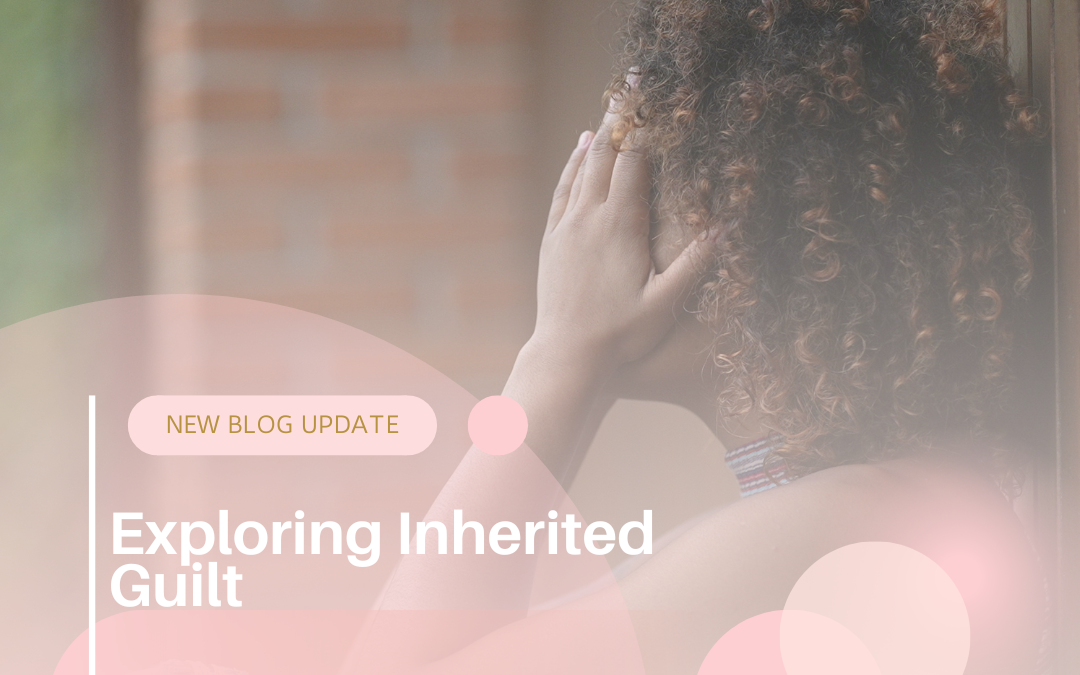Have you ever felt responsible for someone else’s pain, choices, or unhealed wounds—without fully understanding why? Maybe it shows up as guilt when you set boundaries with a parent. Or when you succeed in life but feel like you’re betraying your family’s struggles. These aren’t just random feelings. This could be inherited guilt—emotional baggage passed down from one generation to the next.
It’s real, it’s heavy, and it’s not always yours to carry.
What Is Inherited Guilt?
Inherited guilt is a form of emotional burden passed through family systems, often unconsciously. It can show up when we internalize responsibility for things that happened before us—or things that were never ours to fix in the first place.
This might include:
-
Guilt for having more opportunities than your parents did
-
Guilt for not following a traditional family path or value system
-
Guilt for breaking generational cycles (abuse, poverty, silence)
-
Guilt for not “carrying the torch” of a family role or expectation
-
Guilt over trauma that happened to someone else
It’s like emotional debt—taken on without consent, and without clear terms.
Where Does It Come From?
Much of this guilt has roots in intergenerational trauma. When trauma goes unspoken or unresolved in families, it doesn’t disappear—it transforms. It can be passed down as silence, fear, hyper-responsibility, or the unspoken expectation to “make things right.”
Here are a few common sources:
-
Family Roles: Were you expected to be the “fixer,” “peacekeeper,” or “golden child”? These roles often come with guilt when you try to step out of them.
-
Cultural and Immigrant Experiences: Many children of immigrants carry the weight of their family’s sacrifices. Guilt may arise for not living up to those expectations, or for pursuing personal freedom.
-
Trauma or Loss: If a parent or grandparent survived abuse, war, or hardship, you might feel guilty for living with more peace than they had—even if they want that for you.
-
Emotional Enmeshment: Some families don’t have strong emotional boundaries. When this happens, you may unconsciously absorb their pain, guilt, and shame as your own.
How Inherited Guilt Shows Up in Daily Life
Inherited guilt can be sneaky. It might show up in ways that feel normal but keep you stuck, like:
-
Struggling to celebrate your success
-
Feeling selfish for prioritizing your needs
-
Staying in unhealthy relationships out of loyalty
-
Avoiding conflict at all costs
-
Taking care of everyone else—but feeling resentful and unseen
Sound familiar? You’re not broken. You’ve been trained to feel guilty for choosing yourself.
Releasing Guilt That Was Never Yours
Letting go of inherited guilt isn’t about blaming our families. It’s about honoring what they’ve been through—and giving ourselves permission to grow beyond it. Here’s how to start:
1. Recognize the Source
Ask yourself: Whose voice is this guilt coming from? Is it yours? Your mother’s? A cultural norm? An old story? Awareness is the first step.
2. Name What You’re Carrying
Journaling can be powerful here. Write down the beliefs, expectations, or emotional “rules” you grew up with. Get clear on what’s yours—and what’s not.
3. Practice Reparenting
Give yourself the compassion and permission you may not have received. It’s okay to want more. It’s okay to rest. It’s okay to live differently.
4. Set Boundaries Without Apology
Boundaries aren’t betrayals. They’re the foundation of self-respect. You can love your family and still say no.
5. Seek Support
Therapy is a safe space to unpack intergenerational guilt, learn new patterns, and write a different emotional story.
Final Thoughts
You are not obligated to carry what your ancestors couldn’t heal. You can honor their legacy while choosing your own path. Guilt doesn’t have to be your inheritance. Freedom, peace, and self-trust can be too.
It’s not disloyal to choose yourself. It’s revolutionary.


Recent Comments